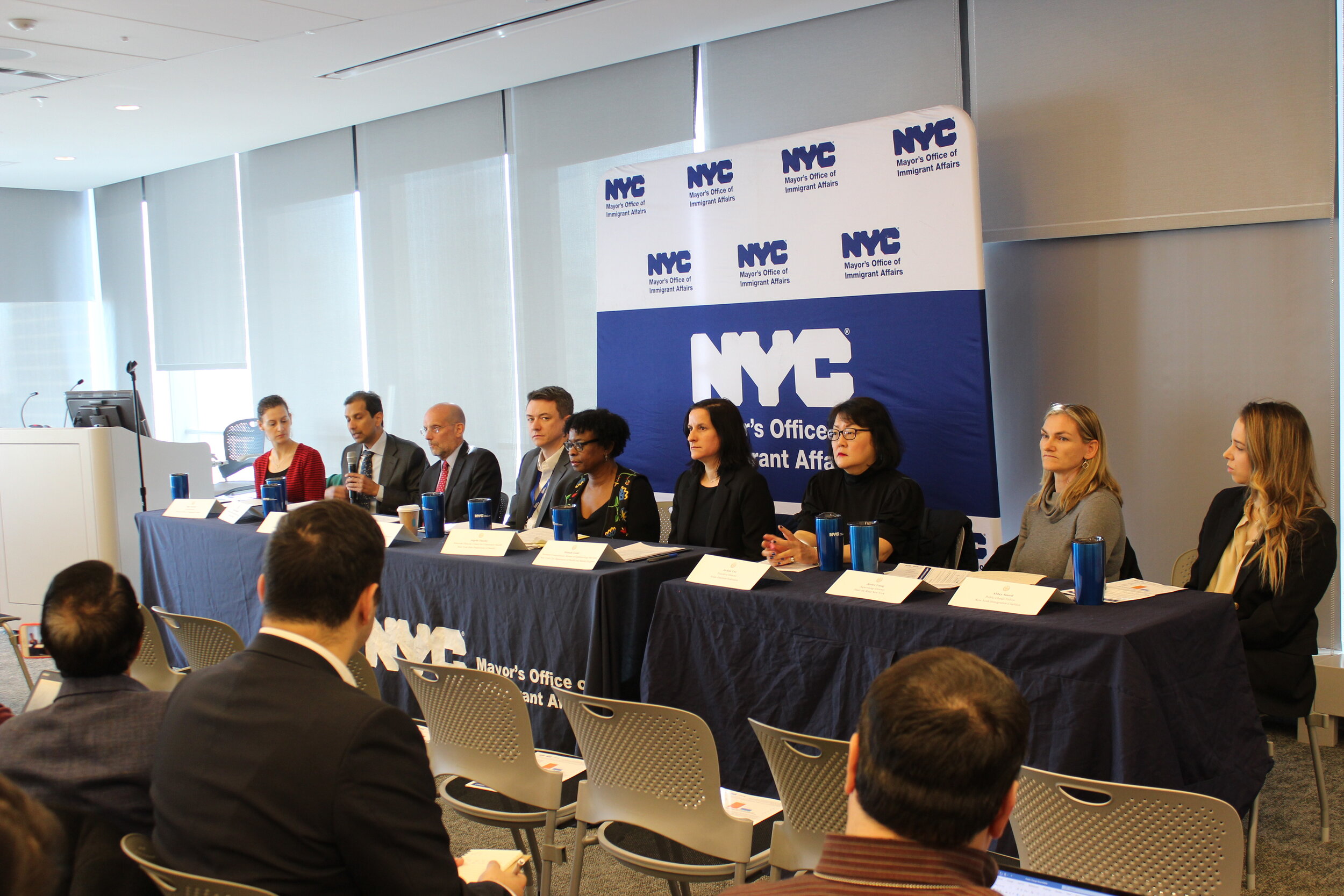City officials prepare for new ‘public charge’ rule
/City officials and immigrant advocates gathered in Manhattan on Monday to brief the media on what the new “public charge” rule means for New Yorkers without citizenship. Eagle photo by Victoria Merlino.
By Victoria Merlino
As a new federal “public charge” rule took effect on Monday, city officials and immigrants’ rights advocates described how the measure will impact noncitizen New Yorkers and discussed legal resources for people who rely on key public benefits.
The “public charge” rule expands the definition of who could be denied entry and permanent residency in the United States based on a person’s likelihood of using public assistance programs like federal Medicaid, food stamps and Section 8 housing — people who receive benefits are referred to as “public charges” in governmental jargon.
In Queens, where immigrants account for 47 percent of the borough’s population, the law has created deep concerns about access to safety net programs and income-bias in who the federal government allows to enter the country.
“I think it’s going to radically transform who’s going to get their green cards in this country,” Hasan Shafiqullah, the Legal Aid Society’s attorney-in-charge of the Immigration Law Unit, said at a roundtable addressing the law.
Factors like having limited English proficiency, having a large family, having a disability, applying for a green card, and being under 18 or over 61 already count against a green card applicant, Shafiqullah said.
But public officials like Mayor’s Office of Immigrant Affairs Commissioner Bitta Mostofi and Department of Social Services Commissioner Steven Banks said that the confusion and fear around the new rule may cause vulnerable people to disenroll themselves or family members from programs that are not impacted by the rule.
“No New Yorker should stop using public benefits that they’re entitled to,” Banks said, asking individuals who have questions to call (800) 354-0365, a hotline that will connect them to legal assistance.
Banks said that his agency has seen a sharp decrease in food stamp cases involving non-citizens since 2017 compared to those cases involving citizens. Banks attributed the decline to the fear generated by the rule.
This fear is also echoed in the healthcare space, according to Chris Keeley, the assistant vice president of ambulatory care operations at NYC Health + Hospitals. For instance, non-citizen parents have had concerns about keeping their citizen children enrolled in Medicaid — something that will not impact the parent’s application for a green card.
“But out of that confusion, you’re seeing that type of disenrollment in the Medicaid space,” Keeley said.
Keeley noted that the rule does not impact many avenues of care for immigrants, including state-funded Medicaid and programs like NYC Care. New Yorkers can receive more information at nychealthandhospitals.org/immigrant.
The public charge rule change was initially scheduled to take effect last October but was stalled by a legal challenge in a number of states, including New York.
The officials and advocate organizations at the table Monday, including the Asian American Federation and Make the Road New York, emphasized that they are ready to help immigrants as they navigate the law. The organizations and the city will continue the fight against the legality of the law.
“We know that the rhetoric associated with the public charge rule, the goals and political aims that the rule and its charges seek to drive and to implement, do nothing to reflect the true nature of our families, of our communities, of the way that our societies are more prosperous, more cohesive,” Mostofi said.




